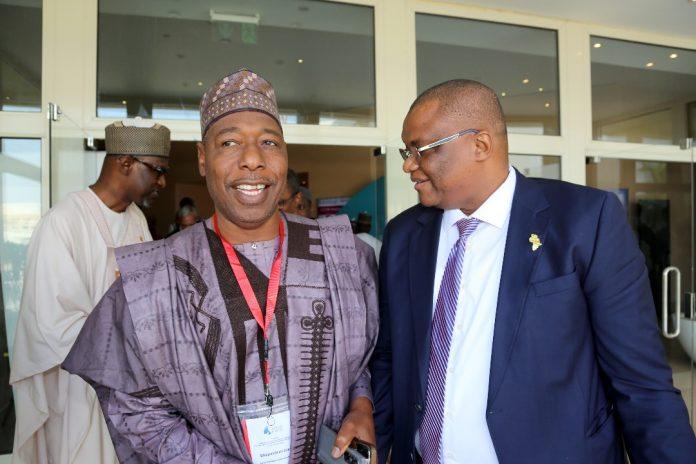Borno State Governor in Notheast Nigeria, Babagana Umara Zulum, has called for a comprehensive, coordinated, and multifaceted strategy anchored on regional collaboration to address the deepening security and humanitarian crisis in the Sahel region.
Governor Zulum made the call while delivering a keynote address at a roundtable session of the 5th Aswan Forum for Sustainable Peace and Development held in Aswan, Egypt.
Speaking against the backdrop of Borno State’s long-standing experience with the Boko Haram insurgency, the governor noted that a purely military approach has proven inadequate in restoring peace across the Lake Chad Basin and the wider Sahel.
“The crises of instability, terrorism, and displacement that plague the Sahel cannot be solved by kinetic means alone.
“We must look beyond the battlefield. There is an urgent need for a multifaceted approach that combines security, development, and humanitarian assistance in a synchronised manner,” Zulum stated.
The governor underscored the importance of greater regional collaboration, pointing out that extremist groups and other transnational criminal networks operate freely across borders.
He stressed that an effective response must therefore be equally cross-border and collective.
“In the Sahel context, you cannot address the challenges by just looking at two or three countries. You need to look deeper into the political region of the Sahel as defined by the United Nations Strategy, which covers 10 countries, including Mauritania, Gambia and Guinea, among others. Collaboration among the larger Sahel communities is paramount,” Zulum noted.
Beyond security measures, Governor Zulum highlighted the urgent need to confront poverty, lack of education, and climate-induced challenges, key factors driving radicalisation and recruitment into armed groups.
“For the last 15 years, we have had many interventions in Borno State, but humanitarian support is not a sustainable solution.
“There is a need for longer-term sustainable solutions. We received many donors, partners, and non-governmental organisations, but most of them engaged in short-term humanitarian responses.
“The nexus between peace, development and security cannot be overemphasised. Without development, there can be no peace or security,” he said.
The roundtable brought together key African leaders and policymakers, including Dr. Badr Abdelatty, Minister of Foreign Affairs, Emigration, and Egyptian Expatriates; Abdoulaye Diop, Minister of Foreign Affairs, International Cooperation, and African Integration, Republic of Mali; and Karamoko Jean-Marie Traoré, Minister of Foreign Affairs, Regional Cooperation and Burkinabes Abroad of the Republic of Burkina Faso.

